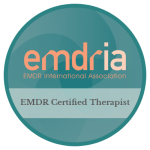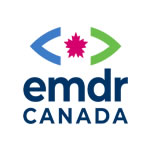
Trauma is an emotional response to an event which is outside of the normal or typical human experience, according to the American Psychological Association.
Examples of Extreme Experiences Include:
- Assault – physical or sexual
- Accidents – car, plane or other traumatic accidents
- Historical childhood trauma – physical, emotional or sexual abuse
- Natural disasters – wild fires, tornadoes, floods
- Medical trauma – illness or significant medical procedures
- Witnessing violence or death – first responders or bystanders
- Military trauma – experiences of combat or war zones
Responses include difficulty regulating emotions, experiencing flashbacks and physical symptoms. Post-Traumatic Stress Disorder (PTSD) does not happen to everyone who has experienced trauma. Help with PTSD and Trauma is a phone call away. Book your free 15-minute consultation.
Gain more insight by reading Annette’s blog on PTSD and First Responders. It is clear that first responders have a higher incidence of mental health and wellness issues related to occupational stress.
While the definition of “First Responder” continues to evolve, Annette recognizes First Responders as, “Those men and women who, in the early stages of an emergency, are responsible for the protection and preservation of life, property, evidence and the environment. They include police officers, firefighters, military personnel, paramedics, medical evacuation pilots, dispatchers, nurses, doctors, emergency medical technicians and emergency managers. First responders are volunteers and professionals who have dedicated their lives to public service. Their life-saving skills often make the difference between life and death.” [Quoted source: https://www.ontario.ca/laws/statute/s13011]
PTSD is probable when the experiences listed below have caused significant distress impairing social, occupational functioning or other areas of your life. It’s important to seek help from a healthcare professional who can offer support and guidance.
It May Be PTSD If You…
- Have experienced or witnessed an event in which your life or others’ lives were threatened with death or serious injury
- Have felt intense fear, helplessness and horror
- Re-experience the event by having intrusive recurrent memories or nightmares
- Feel like you are reliving the event via hallucinations and active flashbacks
- Experience distress or hyper-arousal when exposed to triggers such as sounds, smells, sights which remind you of the event
- Avoid people, places and activities that trigger negative feelings and thoughts
- Experience numbness and cannot feel positive emotions.
Common Issues Arising From PTSD and Trauma May Include:
- sleeping difficulties including nightmares
- flashbacks and intrusive memories
- anxiety
- withdrawing from friends, family and activities previously enjoyed
- using alcohol or pain medication to cope with anger and feelings of helplessness.
Any of these combined with physical pain can make life seem unbearable. You may begin to wonder whether emotional recovery is even possible. It is.
- More symptoms of PTSD
- How you can help someone with Post-Traumatic Stress Disorder (PTSD)
- Treatment for PTSD and Trauma
Let Annette Poechman help you work through the issues related to your PTSD and Trauma, reduce psychological distress, and find the path back to psychological wellness.
Listening. Guiding. Caring.







